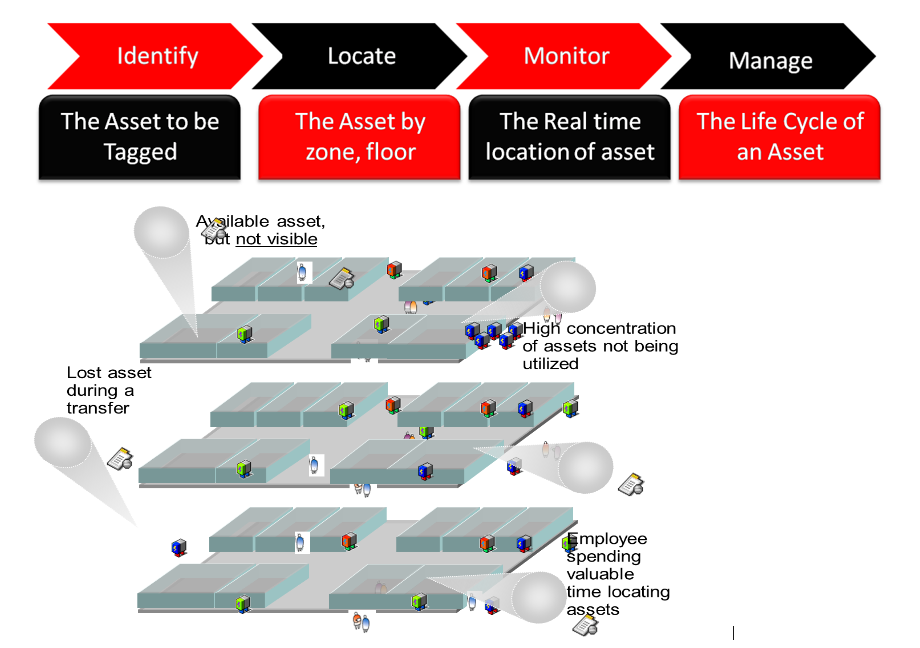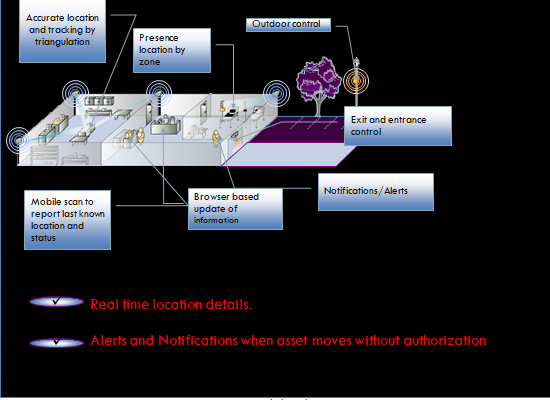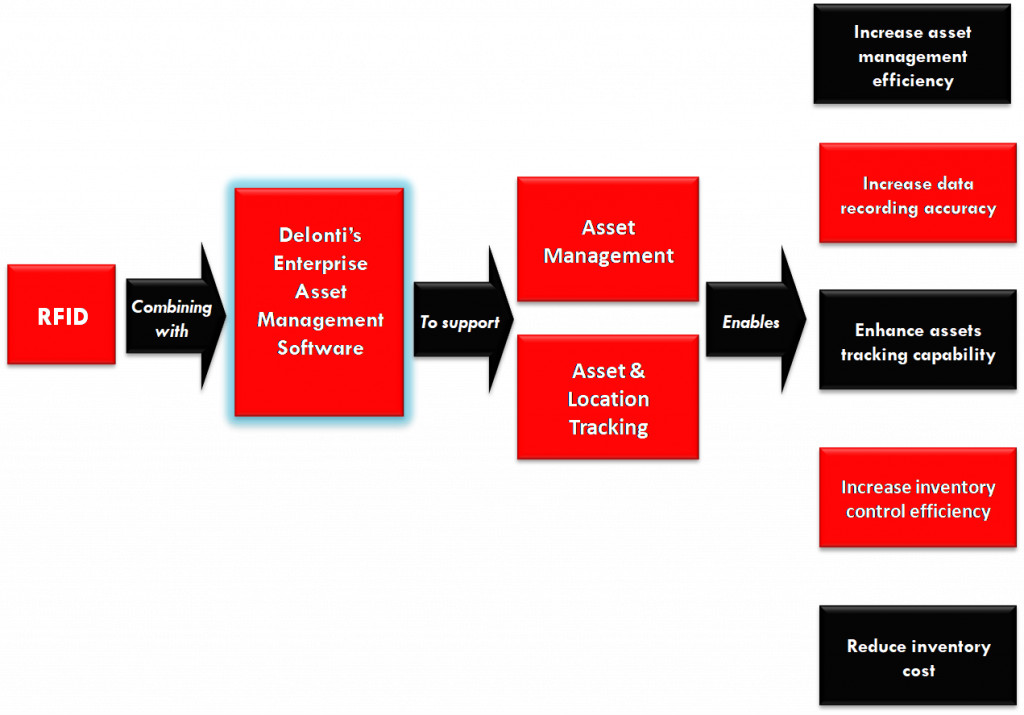RFID Asset and Inventory Tracking
RFID Asset and Inventory Tracking
RFID Asset and Inventory Tracking
RFID Asset and Inventory Tracking
Delonti’s solutions provide the answers with its 4 step directions:

It provides visibility of asset/personnel locations and maintains a historical record of asset/personnel movements.
Salient Features of AIM

Locate Assets: Hospitals are tasked with keeping track of an incredible amount of equipment. Much of this equipment, including patient monitoring devices, wheelchairs, mobile workstations, stretchers, portable x-ray machines, infusers and pumps, are very expensive. Because these assets are continually moving from place to place, they are easy to misplace. Researchers estimate that there is nearly $4,000 worth of hospital equipment per bed lost or stolen in the average hospital every year. Hospitals must then lease new equipment, which can cost hundreds of thousands of dollars annually.
Improves Emergency Response Time: The ability to locate all hospital equipment in real-time has more benefits than just reducing asset loss. It also allows hospital staff to respond more quickly and accurately to emergencies. Finding important equipment quickly is essential in the event of a crisis. Staff cannot afford to waste precious moments searching an area for a defibrillator, for example. Tracking assets with RFID gives medical professionals real-time knowledge of where the nearest necessary device is located, and speeds up their ability to provide quality medical care.
RFID can also be used to guarantee the presence of certain essential items in a designated zone, making sure that assets are properly distributed and restocked throughout the medical center in case of an emergency. Some medical centers have been tagging emergency medical kits in addition to larger assets to ensure that they are filled with the proper tools and medication, and distributed properly throughout the hospital.
Improves Staff Utilization: More than one third of nurses spend at least one hour per shift searching for equipment—a waste of valuable medical staff. Using RFID to track assets means that staff can spend less time conducting inventory or searching for lost items. An RFID system provides a comprehensive picture of the hospital’s inventory, including item status, expiration dates, and amount of usage, all without relying on an arduous manual process.
This means that hospital operations are more efficient and cost-effective, and that the staff are able to spend more time with patients to assess their health problems, provide guidance and support, and perform post-operational monitoring. In this way, the staff provides higher quality healthcare for their patients.
Improves Inventory of Consumables: Hospitals have massive inventories of consumables with diverse expiration dates. Because of this, many products are simply thrown away unused. Tagging consumables with RFID allows hospitals to not only eliminate manual inventory processes that waste time, but enjoy greater inventory accuracy and better utilize their consumables.
Drugs can be tagged with their national drug codes (NDCs), and LOT numbers, which denote the specific batch of the drug, and can contain their expiration dates. When items are inventoried via RFID readers, software can issue alerts about which are recalled or expired. This allows staff to remove all compromised items from use, and make sure the use of soon-to-be-expired products is prioritized over other products.
Tagging consumables with RFID also means that hospitals can move toward vendor-managed inventory. With vendor-managed inventory, the vendor is responsible for placing products in the hospital, and retains ownership of the given products until they are used.
In this model, the hospital only pays for the products it uses, which reduces costs.
Additionally, because responsibility for maintaining the inventory is placed with the vendor, the hospital spends less time managing and ordering products.
Delonti’s Edge
The custom software Delonti provides is written just for your application, to work with the tags, readers, and middleware servers configured to meet your business requirements.
- Experts in designing user-friendly dashboards to manage systems and reporting
- Solutions can be stand-alone, cloud-based, or enterprise integrated as needed
- Variable cost structure and scalable capacity
- Global on-site support, 24/7 offsite support
- 24 hour work-cycles
- Project teams with cross-platform experience.
We deliver complete end-to-end solutions (Requirement gathering – Development – Implementation – Support – Maintenance). We work with our hardware partners to select the right RFID readers/tags/beacons.

